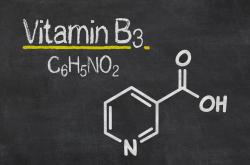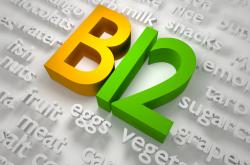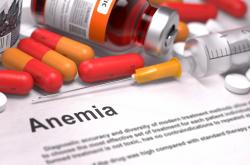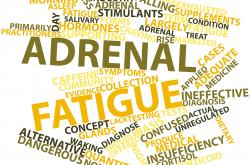Zinc Deficiency and the Fatigue Connection
Deficiency in trace minerals - such as zinc - is an often overlooked cause of fatigue. Learn the signs of low zinc levels and effective ways of supplementing it.
Among all of the many minerals found in the human body, zinc remains one that few people outside the medical and scientific community truly understand. Fatigue sufferers should be especially cognizant of the vital nature of the body’s zinc supply and the fatigue and other symptoms that can accompany zinc deficiency.
Around the world, zinc deficiency is estimated to be the fifth most common reason for disease. Zinc deficiency’s relationship to both pneumonia and diarrhea has resulted in it causing almost 800,000 malaria, pneumonia, and diarrhea deaths in the world each year. Obviously, this trace mineral has an impact on human health that far outweighs its presence in the body.
What is Zinc and How Does it Benefit You?
Zinc is another one of those common earth elements that also happens to play an essential role within the human body. Without it, cells could not be produced, and many enzymes would be unable to do their jobs effectively. Despite that fact, some estimate that as many as two billion people currently have what are considered to be marginal levels of this mineral.
Zinc is found in the fluid of the body, as well as within each cell, bone, tissue, and organ. It is absolutely essential for life in both plants and animals, and plays critical roles in a variety of different bodily processes.
Zinc affects the immune system in profound ways by helping to improve the function of that system and creating cells. These cells are critical for producing collagen and aiding in the healing process. More importantly for fatigue sufferers, zinc aids in the metabolic process by helping to convert macronutrients into the components needed for energy creation.
The thing that is perhaps most important for fatigue patients to understand is that zinc is essential if vitamins are to be able to their jobs. It exists in some small quantity in virtually all of the body’s cells, and carries with it hundreds of the enzymes the body needs to make use of the vitamins you consume. Without the right levels of this mineral, those cells are unable to properly utilize the nutrients provided by your consumption of food, leaving you with a disrupted capacity for energy production. That obviously leads to the type of energy drop that can result in severe fatigue.
How Do You Know if You Suffer from Zinc Deficiency?
One of the first signs of a zinc deficiency is a loss of energy. Additionally, patients may lose their appetite, suffer depression, and experience problems with infections and recovering from injuries. Many lose weight and experience hair loss as well. Low levels of this critical mineral also cause problems with neuropsychological functions, and that can lead to problems with focus, attention span, and even motor skills. Children are especially vulnerable to those effects.
The hair loss problems are typically due to zinc’s connection to hypothyroidism. This is a special concern for anyone suffering from adrenal fatigue, since the thyroid – as well as many other glands – can become major issues when the adrenals are left in a weakened state. In similar manner, the leaky gut difficulties faced by many who suffer from fatigue can often be attributed to zinc levels as well. This can lead to problems with the absorption of nutrients, which can further limit the body’s ability to create the energy it needs to perform properly.
If you find that you suffer from any combination of these symptoms, you may have a deficiency of zinc that needs to be addressed. There are also some risk factors that may make you even more likely to suffer from this deficiency:
- Diabetes. This disease can result in lower zinc levels. If you are diabetic and suspect that zinc deficiency might be an issue, consult with your doctor to determine the best course of action. You should avoid supplementation without a doctor’s recommendation, since too much zinc can dramatically impact your already-uneven blood sugar levels.
- Alcohol abuse. Studies have confirmed that alcoholism has a negative effect on the absorption of zinc. Over time, that leads to deficiency.
- Rheumatoid arthritis. People with this condition also have difficulty absorbing zinc.
- Other absorption syndromes. There are also a variety of other medical conditions and syndromes that can inhibit the absorption of this mineral.
- The elderly are also highly susceptible to decreased zinc levels.
- Vegetarians.
- People suffering from malnourishment.
- Anyone with sickle cell anemia, IBS, or women who are pregnant may also be at a higher risk.
If you suffer from any of those conditions, and are experiencing symptoms of zinc deficiency, it is definitely worth your while to seek a medical consultation to be certain.
How to Diagnose Zinc Deficiency
Low levels of zinc can be notoriously difficult to diagnosis, due to its distribution throughout the body. Since zinc is typically present in all of the cells of the body, most blood tests cannot accurately detect any type of deficiency. Instead, doctors rely upon a physical examination of the patients, and clinical diagnosis based on symptoms. Doctors normally deduce this deficiency when symptoms such as poor immune response, depression, diminished ability to taste food or distinguish between odors, hair loss, diarrhea, and – of course – fatigue. When those symptoms are present, a trial supplementation test is usually ordered. If the patient responds favorably to zinc supplements, then the diagnosis is confirmed and a more in-depth treatment plan can be devised.
Food Sources for Zinc
The best sources of zinc come from a variety of animal and plant foods. Beef is very rich in the mineral, as are eggs, chicken, and oysters. Legumes are a great source as well. Other plant options include black eyed peas and green peas, lentil, dried beans, spinach, and soy. Various seeds and nuts also can be high in zinc. Whole grains typically have a great deal of zinc too. Pumpkin seeds, however, stand alone at the top of this list, and have even more of the necessary zinc than the various meat sources listed here.
How to Supplement Zinc
In most cases, zinc supplementation is best focused on by those who rely almost exclusively on vegetables in their diets. Most people who regularly consume meat cannot help but get enough of the mineral to meet their needs. Still, for anyone who has problems absorbing zinc from their food, a supplement of around 15 mg daily can help. Vegetarians, however, can supplement with around 30 mg a day, since many of them end up severely deficient in this critical nutrient.
Potential Side Effects and Interactions
Care must be taken to prevent excessive consumption of this mineral. At extremely high does, it can impact the immune system and interfere with the absorption of other minerals. That can sometimes lead to anemia, which can increase fatigue symptoms. Other side effects include irritability, vomiting, and headaches. Because large amounts of zinc can affect iron levels as well, supplementation should always be approached in moderation.
Zinc supplements can reduce your copper stores so many experts recommend a copper supplement for anyone taking zinc. In addition, it is important to recognize that calcium supplements, caffeine, and penicillin can affect your body’s ability to absorb zinc normally.
The important takeaway from all of this is that people who suffer from fatigue need to be even more aware of the impact that things like vitamins and minerals have on their energy level. A mineral like zinc – though it only exists in small quantities within the body – can still manage to have a major effect on the body’s ability to maintain its proper energy levels and overall health. As with every issue related to low energy and fatigue, patients are advised to consult with their physicians if a deficiency in this area is suspected.
You might also be interested in:
- 7 Signs of Zinc Deficiency & the Best Foods to Cure it! http://draxe.com/zinc-deficiency/
- Zinc can boost your physical and mental strength. http://www.naturalhealth365.com/natural_cures/zinc-mineral.html
- Zinc Deficiency. http://www.brain-effect.com/en/ratgeber/zinc-deficiency/
- Iron & Zinc Deficiencies. http://www.livestrong.com/article/507482-iron-zinc-deficiencies/
- Lack of Iron & Zinc. http://healthyeating.sfgate.com/lack-iron-zinc-6879.html
- Zinc Deficiency and Toxicity. http://www.merckmanuals.com/home/disorders-of-nutrition/minerals/zinc-deficiency-and-toxicity
- 7 Signs of Zinc Deficiency & the Best Foods to Cure it! http://draxe.com/zinc-deficiency/
- Zinc can boost your physical and mental strength. http://www.naturalhealth365.com/natural_cures/zinc-mineral.html
- Zinc Deficiency. http://www.brain-effect.com/en/ratgeber/zinc-deficiency/
- Iron & Zinc Deficiencies. http://www.livestrong.com/article/507482-iron-zinc-deficiencies/
- Lack of Iron & Zinc. http://healthyeating.sfgate.com/lack-iron-zinc-6879.html
- Zinc Deficiency and Toxicity. http://www.merckmanuals.com/home/disorders-of-nutrition/minerals/zinc-deficiency-and-toxicity
















Leave a comment